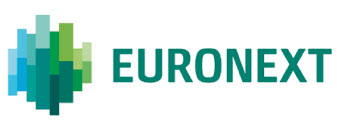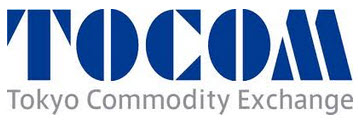If you are interested in trading in commodities, learning a bit about the world’s major commodity exchanges is a good idea since they have such a large impact on the price of commodities traded on them. Even if you are sitting in your home in Saskatchewan, trading soybean and corn derivatives on your smartphone through a small online broker, events that are taking place at TOCOM in Japan or at the Dalian Commodity Exchange in Liaoning can have a huge impact on your bottom line.
Below, we will take a look at some of the major commodity exchanges around the world.
Dalian Commodity Exchange
In China, the commodity futures exchange with the deepest liquidity pool is the Dalian Commodity Exchange (DCE) in the Liaoning province. This is also one of the largest commodity exchanges in the world by volume.
 Examples of underlying commodities for the futures contracts traded on the DCE are eggs, GMO soybeans, non-gmo soybeans, soybean meal, soybean oil, RBD palm olein, corn, cornstarch, iron ore, coal, polyvinyl chloride (PVC), polypropylene (PP), linear low-density polyethylene (LLDPE, blockboard, and fiberboard.
Examples of underlying commodities for the futures contracts traded on the DCE are eggs, GMO soybeans, non-gmo soybeans, soybean meal, soybean oil, RBD palm olein, corn, cornstarch, iron ore, coal, polyvinyl chloride (PVC), polypropylene (PP), linear low-density polyethylene (LLDPE, blockboard, and fiberboard.
Trades on the DCE are carried out in renminbi (RMB), the official currency of the People’s Republic of China. (In colloquial language, the term Chinese yuan is often used interchangeably with renminbi. Yuan is the basic unit of the renminbi.)
The Dalian Commodity Exchange was created in 1993. Until 2006, when Louis Dreyfus’s membership was approved, the exchange had no foreign members.
CME, CBOT, NYMEX & COMEX in the USA
The Chicago Mercantile Exchange merged with the Chicago Board of Trade in 2007, forming the CME Group Inc. In 2008, CME Group Inc. purchased NYMEX Holdings Inc, thus becoming the owner of both NYMEX and COMEX in New York.
 This means that the huge commodity exchanges CME, CBOT, NYMEX and COMEX are all run by the same corporation. CME Group Inc. also has its own company for clearing and settlements: The CME Clearing Services.
This means that the huge commodity exchanges CME, CBOT, NYMEX and COMEX are all run by the same corporation. CME Group Inc. also has its own company for clearing and settlements: The CME Clearing Services.
The currency used by the CME-owned exchanges is United States Dollar (USD).
Examples of derivatives traded on exchanges operated by the CME Group are futures contracts and options contracts where the underlying asset is an agricultural commodity, an energy commodity, or a rare and precious metal. The CME even offers trade in derivatives where the underlying assets are real estate.
The CME Group Inc is listed on Nasdaq (NASDAQ:CME).
The Multi Commodity Exchange of India
The Multi Commodity Exchange of India (MCX) is the country’s largest commodity futures exchange and also one of the largest commodity exchanges in the world by volume. It’s based in Mumbai but operates approximately 585,000 trading terminals and reaches over 1,700 towns throughout India.
Examples of underlying assets for futures contracts traded at the MCX:
| Metal (Bullion) | Gold
Gold Mini Gold Guinea Gold Petal (New Delhi) Gold Global Silver Silver 1000 Silver Micro Silver Mini |
| Metal (non-Bullion) | Aluminium
Aluminium Mini Zinc Zinc Mini Lead Lead Mini Copper Copper Mini Nickel Nickel Mini |
| Energy | Crude Oil
Crude Oil Mini Brent Crude Oil Natural Gas |
| Agricultural | Crude Palm Oil
Mentha Oil Cardamom Cotton Kapas (unginned cotton) |
The currency used for trades at MCX is the Indian rupee (INR).
The Multi Commodity Exchange of India Ltd was created in 2003 and went public in 2012. The shares are traded at the Bombay Sock Exchange (BSE: 534091).
Euronext
 Euronext is a European exchange based in Amsterdam, with additional offices in Brussels, London, Paris and Lisbon. It is one of the largest commodity exchange in the world by volume, and provides both custody and settlement services. The currency used for the trades is Euro (EUR).
Euronext is a European exchange based in Amsterdam, with additional offices in Brussels, London, Paris and Lisbon. It is one of the largest commodity exchange in the world by volume, and provides both custody and settlement services. The currency used for the trades is Euro (EUR).
Commodity Index Futures are traded in both Amsterdam, Brussels, Paris and Lisbon, while commodity Index Options are traded in Amsterdam, Brussels and Paris only. Commodity options are only traded in Paris, while Commodity Futures Contracts are traded in Paris and Amsterdam.
Euronext was founded in 2000 and went public in 2014.
TOCOM in Japan
 The Tokyo Commodity Exchange Inc (TOCOM) is the largest commodity future exchange in Japan and also one of the largest commodity exchange in the world (by volume). Examples of derivatives traded at TOCOM are futures and options where the underlying is natural rubber, soybeans, azuki*, corn, platinum, palladium, gold, silver, crude oil, kerosene, gas oil or gasoline.
The Tokyo Commodity Exchange Inc (TOCOM) is the largest commodity future exchange in Japan and also one of the largest commodity exchange in the world (by volume). Examples of derivatives traded at TOCOM are futures and options where the underlying is natural rubber, soybeans, azuki*, corn, platinum, palladium, gold, silver, crude oil, kerosene, gas oil or gasoline.
TOCOM launched an electronic trading platform in 2009, using technology from Nasdaq OMX. Since 2016, TOCOM has been using the trading platform Next J-Gate, based on technology from the Japan Exchange Group.
TOCOM was founded in 1984 through a merger between the Tokyo Gold Exchange, the Tokyo Rubber Exchange and the Tokyo Textile Exchange. It didn’t become a for-profit shareholder-owned company until 2008.
*Azuki is a type of bean grown in East Asia and the Himalayas.
